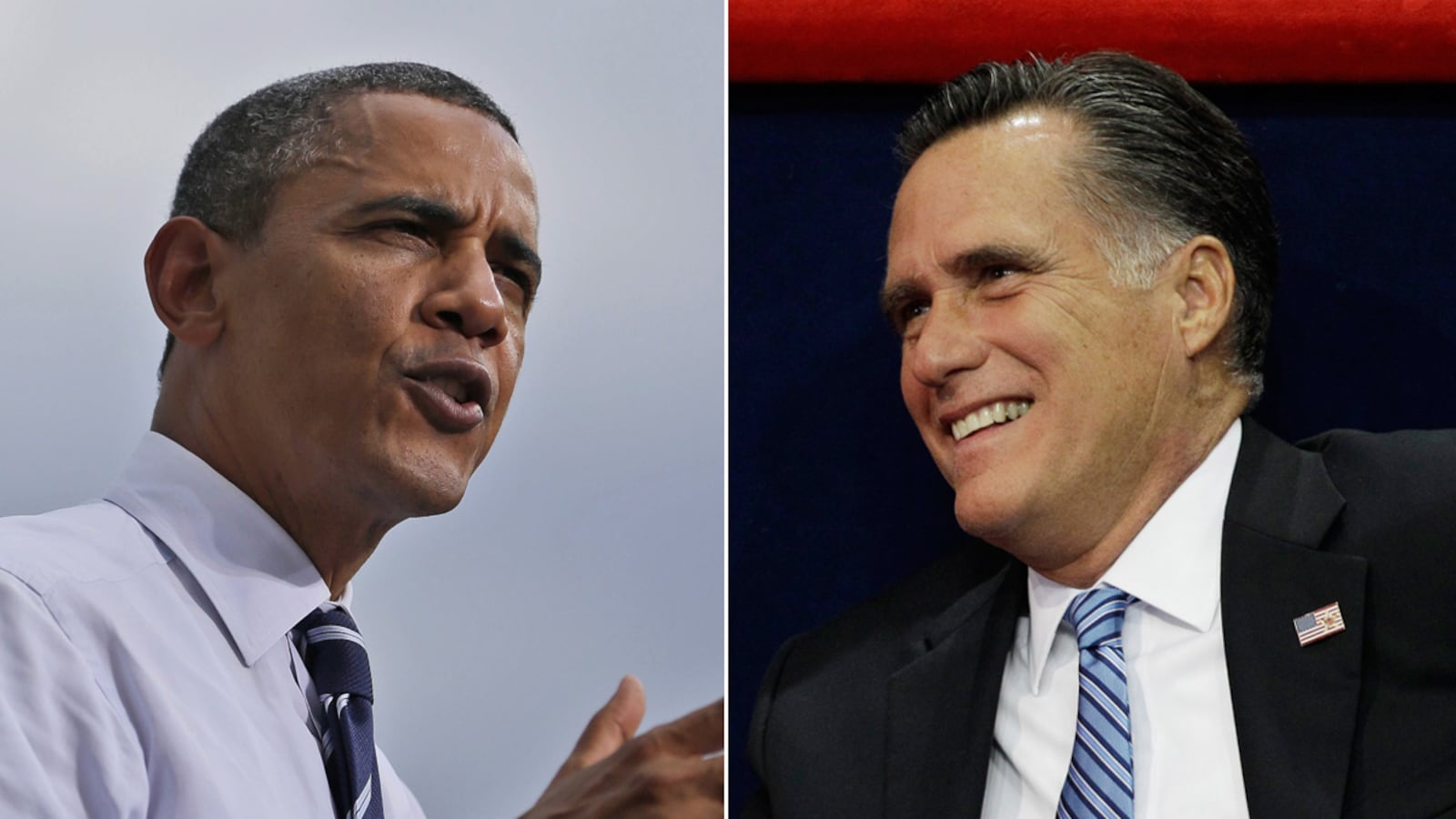It’s all about racism as always: that’s how some commentators—most prominently, Chris Matthews—are reading the latest wrinkles in the presidential campaign. This week Matthews delivered an on-air tirade accusing the Romney campaign of playing the race card. According to Matthews, the GOP’s sins include a TV ad that accuses Obama of wanting to recreate a class of welfare cheats, and a recent joke Romney made about the president’s birth certificate.

For journalists and pundits, it certainly makes for a more interesting story to imply that Obama is about to become a one-term president because of white people’s enduring mistrust of black people, and to view every loaded term or awkward joke as a lethal cannon blast in a bigoted battle. Indeed, people have been waiting for Mitt to go racist since early in the campaign (Lee Siegel’s hopelessly hasty New York Times piece was a prime example). And, by saying and doing some distinctly tacky things, Romney has certainly provided fodder for those expecting racism.
But is it really true? Is race actually playing a key role in this campaign?
Some role, yes: The Romney welfare ad was not only an utter lie—the steps the Obama administration is considering are meant to allow states to get more people to work, not fewer—it was also a clear example of race baiting. One is hardly being paranoid to read this ad as referring to race by implication: Reagan’s use of the phrase “welfare queen” and the centrality of welfare to culture-war debates on race into the 1990s are hardly distant memories. Aside from Romney’s contortions over Massachusetts health-care reform, the ad is his lowest moment of the campaign.
But what about the other data points being widely cited as evidence of Romney’s racism? His comment about no one having to ask him to show his birth certificate qualifies, to me, as an awkward joke, not telegraphed xenophobia. Romney has made quite a few awkward jokes in the past, so there is precedent for reading his comment in that spirit. A misfire? Yes. A dog whistle to bigots? The case is strained.
Many, of course, would count Romney’s recent comment that Obama should take his “divisive, angry campaign back to Chicago” as racially tinged. However, Chicago’s reputation for nasty politics does not have a specifically black face on it. In an alternate universe, if, say, Rahm Emanuel were the adversary, Romney might have made the same comment to him. Surely it doesn’t automatically qualify as racism to say it to a black politician.
Moreover, in assessing Romney’s mindset, it is important to consider how late in the game he pulled his one bit of race baiting to date. During the primaries, Newt Gingrich and Rick Santorum popped off with sour, ill-informed comments on race-related issues. The fact that Romney more or less declined to participate at the time speaks well of him—even if the recent welfare ad does not.
So there’s little reason to believe that—one ill-conceived ad aside—Romney is in a general race-baiting mode. And more broadly I think we need a higher bar for what we view as out-and-out race baiting. One senses that many expect a courtly observation of Rules of War when it comes to race and public statements: that a campaign may be heated, and even tacky, but a tacit compact will be observed that anything that connects, even indirectly, with race is off the table. I find that expectation unrealistic.
For example, Republican-backed voter ID laws are clearly designed to keep as many Democrats from voting as possible, with a special focus on black people. The laws have a viciously disparate impact on blacks, and they should be condemned. However, a GOP operative who supports these laws may well be crudely pragmatic rather than bigoted. Clearly, such a person doesn’t much care what helps black people and what doesn’t. But while that person may be small, he or she is not necessarily what I call racist. This person is, for better or for worse, fighting to win. Conflict—real conflict—is rarely polite.
What’s more, even unambiguous race baiting, such as the Romney welfare ad, may not be as terrible in its effects as is widely feared. Consider the case of Newt Gingrich. During the primaries, Gingrich suggested that inner-city kids should be given after-school jobs to teach them the value of work since they supposedly have so few adult role models who work full time—a statement that clearly invoked a nasty stereotype about black people.
Yet the endemic unemployment that typified the worst inner-city districts in the old days is now a thing of the past—ironically, thanks in part to Gingrich’s leadership on welfare reform. His comment was the occasion for countless writers to show that inner-city black people are quite well positioned to teach their children what it is to work. In the end, Gingrich’s statement arguably proved to be less important than the resounding corrections from multiple pundits that followed it—or the story of black uplift that those corrections documented.
I doubt an anthropologist who descended tomorrow from Mars would recognize race baiting as a key theme in this campaign, as opposed to an occasional whiff. And I doubt historians will see racism as having played a major role in 2012 either. After all, with Obama still ahead in most polls—and enjoying an impressive 28-point lead on likability—whatever race baiting is taking place doesn’t really seem to be working.





